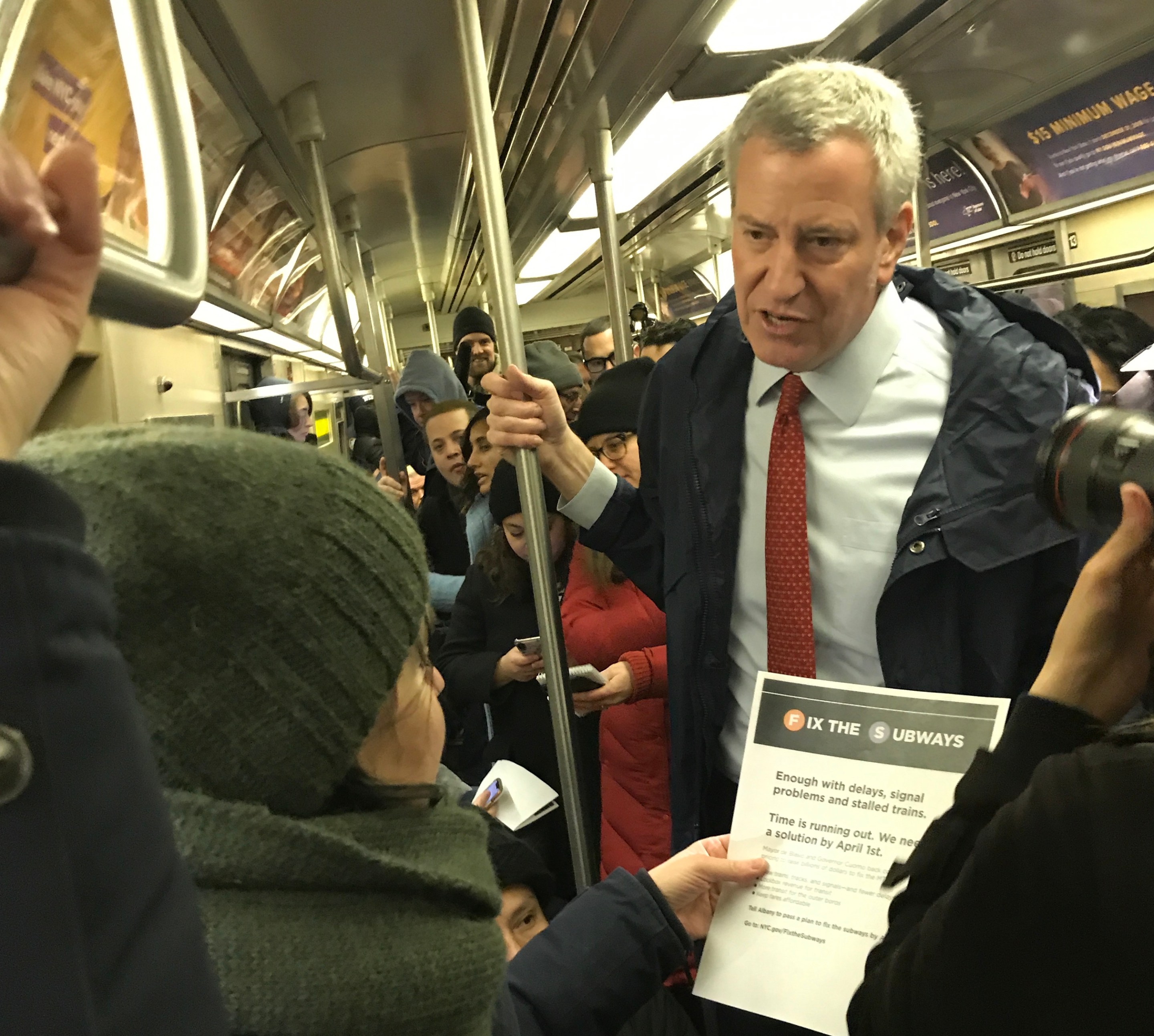As the MTA board gathered in lower Manhattan today to approve an historic $51.5-billion major renovation plan, Mayor de Blasio disclosed this morning that he likes the plan — but will only contribute city taxpayer dollars toward it if he really must — and if city transit needs come first.
The MTA is expecting $3 billion from the city, but de Blasio did not offer that amount, writing only that "it is appropriate that New York City contribute to the 2020-2024 Capital Plan," and adding that he had not arrived at an actual dollar figure.
"As we determine the size and nature of that contribution, we intend to secure conditions to advance the needs of transit riders and taxpayers," he wrote.
Those conditions?
- The city won't contribute until the state realizes the $25 billion that it expects from congestion pricing (which begins in 2021), exacts new tax revenues (such as the "mansion tax"), and exhausts the MTA’s own funding commitment to the plan.
- The state discloses the findings of a "forensic audit" of the MTA that Gov. Cuomo urgently ordered up earlier this year. That audit is set to be completed by the end of the year, the Daily News reported.
- The state commits to city transit "priorities." "The city is interested in service-oriented priority projects and would like these projects addressed on behalf of riders," the mayor wrote. "We look forward to discussing these projects with you and your team in the coming weeks."
The only dollar figure the mayor cited in the letter was $2.66 billion — the amount the city says that it contributed to the current five-year, major-improvement plan, although it never fully did, as MTA accounting shows the city has only contributed $790 million to the 2015-2019 plan. That number suggests that de Blasio will contribute the $3 billion the MTA expects.
MTA Chairman and CEO Patrick Foye, fresh off a unanimous approval of the 2020-2024 plan by the MTA Board, greeted the mayor's letter diplomatically. Asked by reporters today to respond to the mayor's demand that the MTA put up the first chunk of the capital plan money, Foye called the request "not at all surprising."
He further said that he "thought the mayor's letter was an important show of support" and noted that "traditionally" the state and city don't give money to the capital plan until it's near the end of its cycle.
The mayor's demand that the MTA exhaust other funding before the city contributes to the capital plan will strike some transit watchers as rich. Gov. Cuomo issued just such a demand during the fight over last capital plan, asking that the MTA spend all its other money — and even go into debt — before he would release $7 billion in state funds for the construction.
He never released the money — and city subway and bus riders felt its absence.
Then again, some feel that de Blasio's skepticism makes sense, given the capital plan's hefty price tag. The watchdog group Reinvent Albany asserted on Wednesday that it's not so much worried that the MTA will be able to find the money to get all the projects done — rather, it's worried about whether the agency can complete those projects.
"The biggest constraint on completing MTA capital plans is the MTA’s ability to spend, not find funding," the group said in a statement.
Like de Blasio, the group is calling for transparency about which projects will get priority and for "an honest spending plan showing realistically how much MTA can actually spend per year."
Read the letter yourself below. This story was updated in order to reflect the comments today of MTA Chairman Patrick Foye.
2020-2024 Capital Plan Letter to Chairperson Foye by Gersh Kuntzman on Scribd






